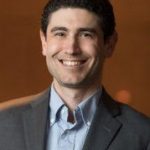By: Ezra Golberstein

Several years ago, the Robert Wood Johnson Foundation (RWJF) announced a new set of programs intended to develop the human capital required to realize RWJF’s vision for a Culture of Health. These programs aim to create new networks of leaders who work together to help advance RWJF’s vision. Of those new human capital programs, one is focused on research, the Interdisciplinary Research Leaders (IRL) program.
IRL is an unusual program. It is not a post-doctoral fellowship. Rather, it focuses on recruiting “mid-career” researchers. It is not just a research grant program, or just a training program; rather, it is both. Perhaps the most unusual aspect of the program is the structure. Applicants do not apply as individuals; they apply as a three-person team. Each team is comprised of two researchers, ideally from different scholarly disciplines, along with one “community partner.” Community partner is defined broadly, and could mean a leader in a community-based organization, a clinician, a community organizer, or an official in a policy office, for example. Each team forms around a particular project where all three members are equitable partners in defining the research questions, implementing the research, and communicating the results. Teams can be an extension of existing collaborations, or teams could form explicitly for IRL. Teams don’t need to be located at the same institution or even in the same geographic area as long as they have a strong plan for collaboration.
The IRL program experience is three years long. Each cohort consists of 15 teams that are located across the U.S. and Territories. The experience is largely virtual. Cohorts move through a curriculum together and participate in regular work-in-progress webinars together. The entire IRL program convenes for in-person meetings 2-3 times per year. IRL includes a stipend that is intended to cover approximately one day of effort per week during the three program years. IRL teams also receive a research grant of up to $125,000 to implement their research project, and these funds could be used in part to cover additional effort from the team.
Running through the entire IRL program is the commitment to advancing health equity, conducting rigorous research on questions that matter for communities, and using evidence to drive policy change and action. The IRL curriculum includes training in community-engaged research; equity, diversity, and inclusion; communication and dissemination; and how to work with communities to drive action and policy change.
One health economist in IRL is Stacey McMorrow of the Urban Institute, whose team also includes a qualitative public policy researcher from the Urban Institute and an Ob/Gyn from Dartmouth-Hitchcock Medical Center in New Hampshire. Their project centers around the effects of labor and delivery unit closures in rural New Hampshire. Dr. McMorrow says:
When I applied to the IRL program, I was mostly interested in learning more about mixed-methods research and rural health policy issues. I spend a lot of time analyzing large national datasets, so focusing on a narrow geographic area and partnering with a local physician and a colleague with expertise in qualitative methods seemed like a novel and exciting opportunity.
I have been really impressed with the level of engagement from the local provider and policy communities. The feedback that we have received has already been incredibly helpful in shaping our research.
It has been humbling and inspiring to be surrounded by so many smart people with such a sincere passion for improving the health and well-being of rural Americans. I would highly recommend the program to other health economists. It may sometimes take you far outside your comfort zone, but it’s well worth it.
The demand for IRL has been strong to date, but we have noticed that we receive relatively few economist applicants. Health economists bring essential tools and perspectives to the task of building a Culture of Health and advancing health equity, and IRL is therefore very interested in having more economists apply and participate in the program. IRL is administered by a National Program Center that is housed at the University of Minnesota School of Public Health, and is preparing to launch the Call for Proposals for its fifth cohort. If you are interested in learning more about recruitment beginning in January 2020, go to https://interdisciplinaryresearch-leaders.org/, follow us on Twitter at @IRLeaders, or email us at ResearchLeaders@umn.edu. To read about current IRL fellows and research, go to https://irleaders.org/.
Ezra Golberstein is an Associate Professor of Health Policy and Management at the University of Minnesota, and an Associate Director for Research of the RWJF Interdisciplinary Research Leaders Program.
